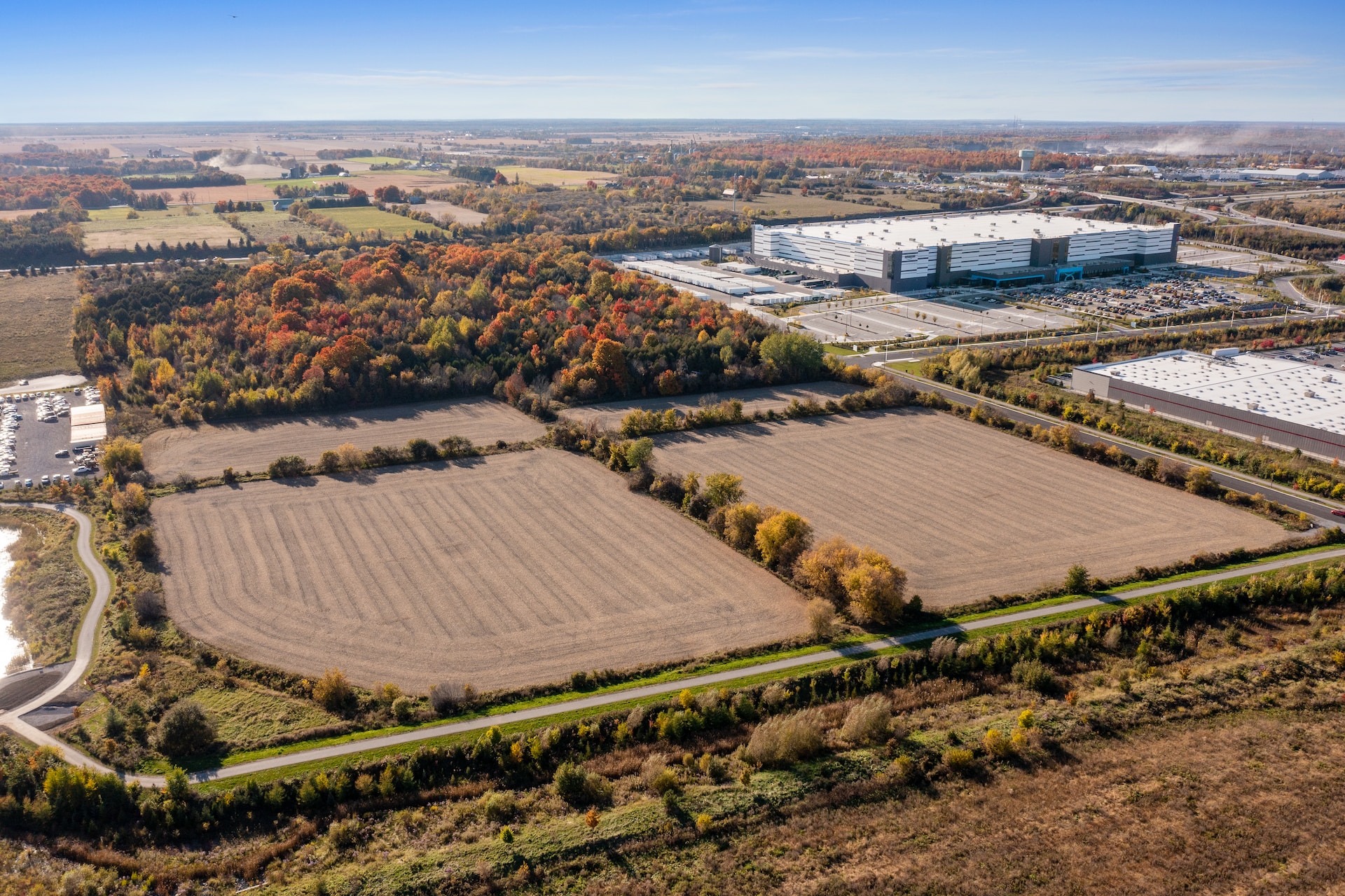by Marija Josifovska
Share

Selling land that’s raw can be a significant decision, offering the opportunity to unlock its value and capitalize on its potential. However, when considering a partial land sale, where only a fraction of your property is being sold, a strategic approach becomes crucial to maximizing your returns.
This blog post will guide you through the process of partial land sales, providing insights and strategies to help you make informed decisions and achieve the optimal outcome.
Whether you’re looking to leverage unused land, diversify your investments, or unlock cash flow, understanding the steps involved in selling a fraction of your land will empower you to navigate the process with confidence and maximize the returns on your valuable asset.
Benefits of Selling Just Part of Your Vacant Land
Selling a piece of land can offer several benefits depending on your specific circumstances and goals. Here are some key advantages:
- Financial gain. Selling land can provide a significant financial return. The sale’s revenues might be put to good use for generating quick cash flow, making additional investments, clearing debts, or funding other financial objectives.
- Unlocking value. If you have unused or underutilized land, selling a portion of it can unlock its value and put the asset to work. By converting land into liquid assets, you can leverage its worth and potentially generate a higher return on investment.
- Diversification. By reallocating your resources and investing in different assets or ventures, you spread the risk and potentially increase your overall financial stability.
- Mitigating expenses. Selling a portion of your property can help offset expenses related to land ownership. This can be quite beneficial, especially if you are not utilizing the entire property or if the ongoing costs outweigh the benefits.
- Simplifying management. If you find managing a large piece of land burdensome or time-consuming, selling a portion of it can reduce your responsibilities. Your time and resources could be freed up as a result to work on other tasks or priorities.
- Meeting specific needs. Selling land allows you to tailor your assets to your current needs and lifestyle. Whether you want to downsize, consolidate your holdings, or address changing circumstances, selling a portion of the land can help you align your property portfolio with your evolving requirements.
Important Considerations When Selling a Part of Land
Let’s look at some crucial considerations to make before moving forward with a partial real estate transaction.
Determine if the Land for Sale Consists of Multiple Parcels
Determining if the land consists of multiple parcels ensures compliance with legal and administrative requirements as each parcel may have separate legal descriptions and land ownership records.
Understanding the property lines and legal status of each parcel is vital for a smooth and legally sound transaction. Additionally, identifying multiple parcels allows for a more accurate assessment of marketability and value.
Each parcel may have distinct characteristics, such as size, zoning, or development potential, which impact their individual worth. This knowledge enables you to strategically price and market each parcel, maximizing the overall value of the land.
Furthermore, recognizing multiple parcels opens up various development and use opportunities. Different parcels may have unique zoning designations or undeveloped land use regulations, attracting lot and land buyers with diverse interests and objectives. The flexibility to sell all lots together, separately, or in different combinations enhances your sales strategy and widens the potential buyer pool.
Assess the Property You Intend to Sell
It is crucial to carefully assess the property boundaries and features of the area of land you plan to sell before moving forward with a partial land sale.
Determine the exact area that will be included in the sale and clearly define its boundaries. This assessment ensures that you have a precise understanding of the specific parcel you are offering to potential buyers.
Consider any legal or zoning implications that may impact the sale process. Familiarize yourself with local regulations and restrictions that could affect the sale of the land. Check to see if the area of land being sold has any easements, rights-of-ways, or encumbrances. Understanding these legal aspects ensures a smoother transaction and avoids any complications that may arise during the sale process.
Finally, determine the unique property features or potential uses of the land that can attract prospective buyers. Assess the land’s characteristics, such as topography, natural resources, nearby amenities, or any existing infrastructure. Identify any development potential, such as residential, commercial, or recreational possibilities. Highlighting these features can enhance the attractiveness of the land to potential buyers, maximizing its marketability and increasing the potential for a successful sale.
Set Your Objectives
Before embarking on a partial land sale, it is crucial to identify your goals and motivations for selling a portion of the land. The land market moves differently than the existing homes market, so you need to carefully inspect your objectives.
Are you looking to generate immediate cash flow, diversify your investments, or leverage underutilized assets?
Also, determine the desired financial outcome of the partial land sale and how it aligns with your long-term plans. Examine your existing financial condition and how the sale revenues may help you achieve your long-term financial objectives.
Whether it is to fund other ventures, invest in new opportunities, or enhance your financial security, having a clear understanding of the desired financial outcome will help you set realistic expectations and make informed decisions during the negotiation and pricing land stages.
Subdivide the Land
Subdividing land involves dividing a larger parcel of land into smaller individual lots or parcels.
This can offer several advantages and considerations, including minimum lot size requirements, lot size considerations, and utilities.
Minimum Lot Size Requirements
It’s crucial to consider the minimum lot size requirements established by local zoning and land-use regulations when subdividing land for sale.
These regulations vary by jurisdiction and may dictate the minimum size a lot must be to meet the criteria for subdivision.
Understanding these requirements ensures compliance and helps determine the number of lots that can be created from the original parcel.
Lot Size Considerations
The size of each subdivided lot is a crucial factor in the subdivision process. Factors such as land market demand, zoning regulations, and the intended use of the lots can influence the ideal size for each lot.
It is important to consider the potential marketability and feasibility of the individual lots when determining their size. Additionally, balancing the desire for maximum profit with the practicality of developing and selling smaller lots is a key consideration.
Utilities
Access to essential services like water, sewage, electricity, and gas is important for potential buyers and developers.
Before subdividing land, it is important to assess the availability and capacity of utilities to serve each lot. Adequate utility infrastructure ensures the practicality and marketability of the subdivided lots.
Infrastructure Considerations
Subdividing land may also require considering additional infrastructure needs. This includes road access, drainage systems, and any other necessary improvements to ensure the functionality and desirability of each lot. Evaluating the existing infrastructure and identifying any required enhancements or modifications is important during the subdivision process.
Can You Sell a Portion of Your Land If You Have a Mortgage?
Even if you have a mortgage, you are still allowed to sell or divide a portion of your land.
To get the required approval from your lender, though, there are specific actions that must be followed.
When you secure a loan, the property serves as collateral for the mortgage.
Selling a part of the land reduces the collateral, introducing an additional risk for the lender. Therefore, getting your bank’s or another financial institution’s approval is essential.
To proceed, reach out to your lender and inquire about obtaining a partial release of the mortgage. Keep in mind that not all loans allow for partial releases, so it’s important to verify this with your specific mortgage agreement.
Some loans do permit partial releases, particularly if you have sufficient equity in the property. By contacting your lender, you can initiate the process and determine if you meet the criteria for a partial release of the mortgage.
Should You Sell a Portion of Your Land for Cash?
Selling a portion of your land to a real estate investor can be a time-saving option. It eliminates the need to search for a good real estate agent, conduct interviews, invest in quality lot or land photographs, or create your own marketing strategy for selling land independently.
A land appraisal is not required with a cash sale because there is no involvement from a lender, removing a significant barrier to selling. The land-buying company conducts digital land research and bases its decision on the findings to make a cash offer.
Selling to a real estate investor is typically the fastest way to sell land as well. The entire process will be done within a few weeks and you will be able to move swiftly to avoid the bother that generally comes with paying fees, signing contracts, and other onerous paperwork.
Selling Only a Part of Your Raw Land: Final Thoughts
Selling a portion of your rural land can be a strategic decision for property owners. You can enhance the value of your land sale by making well-informed decisions by being aware of the legal, financial, and market ramifications.
When selling land to SimpleLandSelling, you’re cutting real estate agents which saves you a lot of resources. Before making you a tempting cash offer, we independently analyze the property. We also pay all transaction costs associated with purchasing your land.
And, because we don’t use banks for financing, closings can often be completed in as little as two weeks.
Contact us today and learn how to maximize your profits on just a portion of your land!





